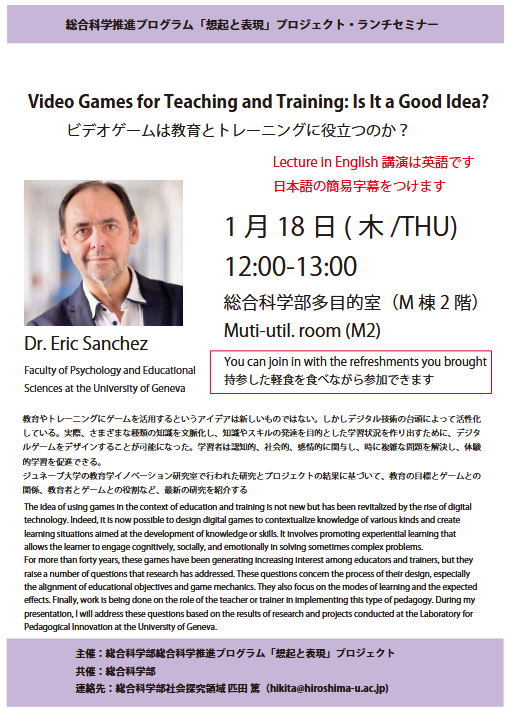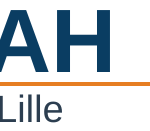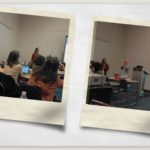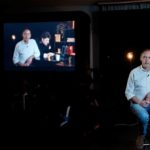

L’Université d’Hiroshima a organisé un séminaire dans le cadre du séjour d’Eric Sanchez en tant que professeur invité en janvier 2024. Ce séjour est financé dans le cadre d’un projet FNS Scientific Exchange et par l’Université d’Hiroshima.
Le séminaire intitulé « Digital Games for Teaching and Training: Is it a Good Idea? » a abordé la question de l’apprentissage par le jeu. Outre les étudants et chercheurs de la Graduate School of Humanities ans Social Sciences, le séminaire qui a été donné en mode comodal, a également permis à des collègues basés à Tokyo de participer en ligne. Le séminaire a permis de présenter différents projets menés au sein du LIP/TECFA et d’échanger sur de futures collaborations.
Cette invitation fait suite au séjour du professeur Atsushi Hikita au LIP/TECFA en octobre 2023. La prochaine rencontre du LIP avec nos collègues japonais, Atsushi Hikita et Toshinori Saito devrait avoir lieu à Bournemouth, en février 2024, dans le cadre de la conférence OCCE 2024.
- Summary of the seminar
Digital Games for Teaching and Training: Is It a Good Idea?
The idea of using games in the context of education and training is not new but has been revitalized by the rise of digital technology. Indeed, it is now possible to design digital games to contextualize knowledge of various kinds and create learning situations aimed at the development of knowledge or skills. It involves promoting experiential learning that allows the learner to engage cognitively, socially, and emotionally in solving sometimes complex problems.
For more than forty years, these games have been generating increasing interest among educators and trainers, but they raise a number of questions that research has addressed. These questions concern the process of their design, especially the alignment of educational objectives and game mechanics. They also focus on the modes of learning and the expected effects. Finally, work is being done on the role of the teacher or trainer in implementing this type of pedagogy. During my presentation, I will address these questions based on the results of research and projects conducted at the Laboratory for Pedagogical Innovation at the University of Geneva.



